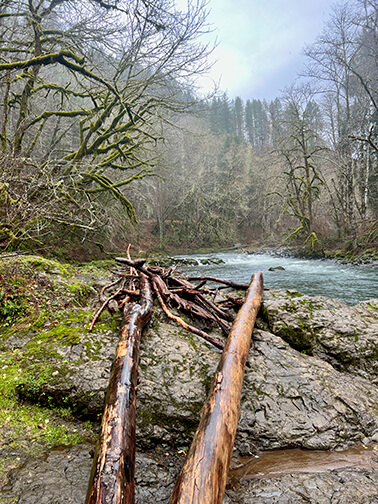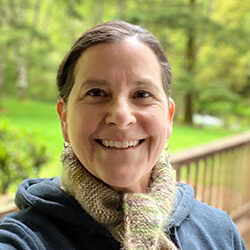HCA Writing Program
Nature-Inspired Writing Series: Writing and the Ecological Self
with Christina M. Burress
February 8, 15, and 22 | 1:00-4:00pm
Tuition: Single Workshop | $80 Series of 3 Workshops | $200
Hoffman Center for the Arts | 594 Laneda Avenue | Manzanita, Oregon
Nature-Inspired Writing Series: Writing and the Ecological Self with Christina M. Burress
Course Description:
This nature-inspired writing series will explore how our ecological self, the part of us who is in a compassionate relationship with other beings in Nature, including mountains, rivers, animals, trees, plants, and fungi, is calling us to return to the Earth as a source of creativity. The invitation is to deepen skills of observation and connection by opening up the senses to all that the natural world is broadcasting. We will hold space for the messages and support each other with deep listening and kind observations, connecting with each other over imagery and the gifts of poetry, prose, and fragmentary writing. All levels of writers and types of genres are welcome. Each workshop can be taken as a standalone or altogether, to build on the interrelated themes.
This workshop is open to 12 participants, and will take place in person in the HCA Main Room.
Registrants for the Series of 3 Workshops will also receive a 1:1 Zoom call with Christina as a follow up or support for a burgeoning or ongoing project.
Scholarships are available for this workshop series.
For more information, please inquire here.
February 8: Workshop #1 – Remembering our Place in the Biosphere & the Ethnosphere
We are part of the biosphere, the biological web of life, as well as the ethnosphere — what writer, anthropologist, and ethnobotanist, Wade Davis, defines as being the sum total of all thoughts and dreams, myths, ideas, inspirations, and intuitions brought into being by the human imagination since the dawn of consciousness. Living in these rich states of being encourages our creativity and ultimately inspires our writing. In this first workshop, we will explore what it means to return to our Nature selves. Author, naturalist, and tracker, Jon Young, recommends we find a “sit spot,” a place to return to over and over again to strengthen our skills in observation. Botanist and author, Robin Wall Kimmerer, suggests it’s a matter of relearning how to see, and Kiowa poet, novelist, artist, teacher, and storyteller, N. Scott Momaday advises that we give ourselves up to a particular landscape.
 This is a generative writing workshop. Participants will be given prompts to inspire new writing in response to our discussion and will be provided readings on the topic.
This is a generative writing workshop. Participants will be given prompts to inspire new writing in response to our discussion and will be provided readings on the topic.
Materials needed: pen and journal
February 15: Workshop #2 – The Elements & the Imagination
Honoring the Elements–earth, air, water, and fire–helps us consider the borderless nature of awareness. When we notice one thing, it is likely that it raises our attention to other things previously overlooked. Each element intermixes, overlaps, collaborates, and co-creates with the others. Wind moves fire. Fire is doused by rain. Air moves seeds and starts new life. And earth blooms thanks to light, heat, and water. Like the beaver, bear, and salmon, who are integral parts to a thriving landscape, we have our role too! In this workshop, we will work in the realm of the imagination and metaphor to shape writing that honors the dynamic world, celebrates the mystery, and sings the praises of life on Earth: mainly that we are all inextricably linked. The words of poet, Natalie Diaz, the visual art of Cecilia Vicuña, the findings of biologist and author, Merlin Sheldrake, and the wisdom of writer, Rabindranath Tagore, are just some of our guides for the workshop.
This is a generative writing workshop. Participants will be given prompts to inspire new writing in response to our discussion and will be provided readings on the topic.
Materials needed: pen and journal
February 22, 2025: Workshop #3 – Rewilding our Language 1:00-4:00 pm
In this workshop, we will explore what it means to rewild our language. Author, Robert Macfarlane, writes about the relationship between language and landscape. He says that if we are practiced in deep listening, place can provide “terms for particular aspects of terrain, elements, light and creaturely life, or resonant place names.” Place speaks through us and we act as translators. Iñupiaq poet, dg nanouk okpik, explains her writing process: “I am just a hollow bone, a vessel through which the images and music blow”. When we no longer impose the academic vocabulary we’ve learned on place and experience, we can open to the possibility that the natural world has its own language. Author and naturalist, David Lukas, challenges academic language structured by rules and expectations and invites us to be playful, inventive, and experimental with how we write about our time in nature.
This is a generative writing workshop. Participants will be given prompts to inspire new writing in response to our discussion and will be provided readings on the topic.
Materials needed: pen and journal
Instructor Bio
Christina M. Burress is a published poet and writer, educator, and facilitator on a mission to inspire writers to explore and reclaim their relationship with the natural world as a source for boundless creativity. She is guided by the principle of Nature-Inspired Writing in all her work. Since 2007, Christina has been teaching writers of all ages across a variety of settings and platforms. She worked as a California Poet in the Schools, created summer writing camps for youth in Southern California and Colorado, and has spent years in the classroom teaching middle, high, and graduate students. She currently teaches poetry and nature writing at UCSD Extended Studies and Olympic Mountain EarthWisdom Circle. Christina lives with her husband next to the Trask River in Tillamook. You can find more information at her website and on LinkedIn.
Click here to view and download workshop flyer
Please email [email protected] with any questions you may have.


 This is a generative writing workshop. Participants will be given prompts to inspire new writing in response to our discussion and will be provided readings on the topic.
This is a generative writing workshop. Participants will be given prompts to inspire new writing in response to our discussion and will be provided readings on the topic.